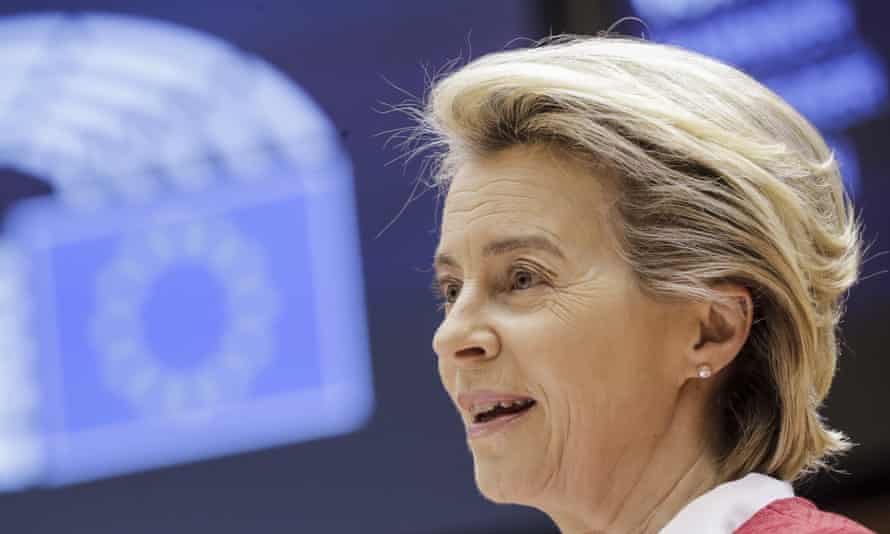Three Covid medicines with the potential to “change the course” of the pandemic will be authorised for mass production and use in the EU by October under a European Commission plan.
Stella Kyriakides, the commissioner for health, said such a move would reduce hospitalisation and tackle the long-term impact of Covid, with one in 10 people reporting symptoms 12 weeks after infection.
An initial €90m (£78m) has been available for clinical trials and €40m will be given to manufacturers to ramp up production. It is hoped that a further two therapeutic drugs could be added to the list of three by the end of the year.
The five drugs selected for investment, which will be chosen from a long list of 57 candidates drawn up by the European Medicines Agency (EMA), will be wholly produced within EU member states.
“The idea is to have EU production,” Kyriakides said. “And we would reserve the factories for this in order to be able to show that, if we needed it, we could start ramping up production as quickly as possible.
“We’re seeing that the effects of Covid can be long-lasting and then infected people can have the symptoms for far longer than then could be expected and therapeutics will be playing a very significant role in our response to Covid,” the commissioner added.
“They’ll be helping to save lives, they will be speeding up recovery time. We will aim to, by October, develop and authorise three new effective Covid-19 therapeutics that can have the potential to change the course of Covid-19, and another two potentially by the end of the year.”
There are three medicines already under rolling review by the EMA: the Regeneron antibody combination, the Celltrion monoclonal antibody, and the monoclonal antibodies from Eli Lilly, which offered evidence of reducing the risk of hospitalisation and death by 87%.
While the Regeneron and Celltrion drugs have not been given marketing authorisation, member states have been given permission by the EMA to use them on patients not requiring oxygen and at high risk of progressing to severe illness.
Regeneron’s antibody cocktail was authorised for emergency use in the US in November, and was given to Donald Trump when he became infected. An EMA review is also expected to start within days of a fourth drug, Sotrovimab, by GlaxoSmithKline.
Kyriakides said the vaccination programme had highlighted the importance of being ready to quickly boost production when successful treatments were discovered. The EU’s vaccine rollout was hindered in the opening months of the year by a supply problem when AstraZeneca was unable to meet its delivery commitments.

On Thursday, the European Commission president, Ursula von der Leyen, nevertheless claimed the EU vaccine strategy had been a “success”, with a quarter of EU citizens having had a first jab.
Von der Leyen added that after being initially cautious about waiving intellectual property protections that the EU was willing to discuss the issue with the White House after a proposal by Joe Biden.
She said: “The European Union is also ready to discuss any proposal that addresses the crisis in an effective and pragmatic manner. That is why we are ready to discuss how the US proposal for a waiver on intellectual property protection for Covid-19 vaccines could help achieve that objective.
“In the short run, however, we call upon all vaccine producing countries to allow exports and to avoid measures that disrupt supply chains.”
The commission has set a target of fully vaccinating 70% of EU citizens by mid-July. Kyriakides said: “[I am] cautiously, I would say, optimistic that we’re on track for this, but it also very much depends on the vaccination rollouts of the different member states.”
This content first appear on the guardian
